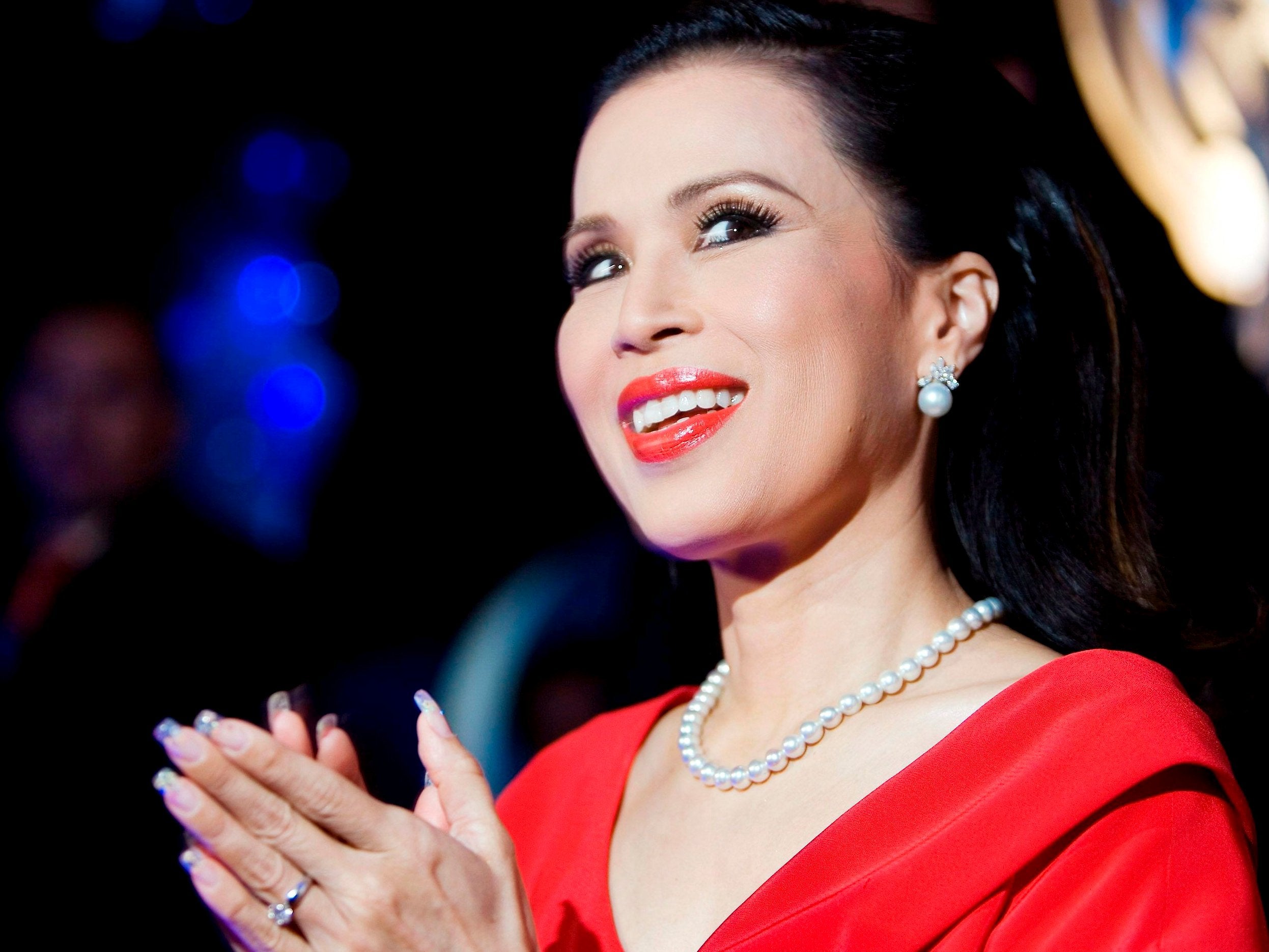Thai Princess Ubolratana enters race to be prime minister in 'profound' shift for country's politics
Active on Instagram and with several movie credits, Princess Ubolratana is unlike any other Thai royal

The older sister of Thailand’s King Maha Vajiralongkorn has entered the running to become the next prime minister, a stunning move that throws the country’s political landscape into disarray.
Princess Ubolratana Mahidol was named on Friday as the candidate for a party allied to the controversial but powerful former prime minister Thaksin Shinawatra, despite a decades-long policy of the revered Thai royal family not intervening publicly in politics.
Thailand is due to hold its first democratic election next month since a military junta took control of the country in a coup. And while a pro-military party had been expected to win the vote, analysts said there would now be serious questions over whether anyone could practically campaign against a member of the royal family.
“This is a profound development,” said Thitinan Pongsudhirak, a political analyst at Chulalongkorn University, which he said abruptly made the princess’s Thai Raksa Chart party a “leading contender”. Her decision to enter politics would “shape the contours and dynamics of Thai politics before and after the election”, he told Reuters.
With an active Instagram account and past roles in several popular Thai movies, 67-year-old Princess Ubolratana is unlike any other Thai royal. She was forced to renounce her royal titles in 1972 when she moved to the US to marry an American.
Funeral of Thailand King Bhumibol Adulyadej: in pictures
Show all 21But she later returned to royal duties, charity work and public life in Thailand after her divorce in 2001, and is treated by officials as a member of the royal family.
It was in an Instagram post that Princess Ubolratana announced she had accepted the candidacy for Thai Raksa Chart, saying she was exercising her rights as a citizen. ”I have relinquished my royal titles and lived as a commoner,” she said, adding that she was free to run “without any privileges above other fellow Thai citizens under the constitution”.
Thailand’s King Vajiralongkorn later said it was “inappropriate” for his sister to run in the election. In a palace statement, he said the move would “defy the nation’s culture”. This could lead to her being disqualified from the 24 March election.
Few royal families around the world receive the kind of adulation given by Thailand’s people. Criticism of royals is a criminal offence and has been punishable by harsh jail terms, particularly since the military junta took over in 2014.
Anticipating the struggle it will face competing against a princess, one pro-military party has already lodged a complaint against Thai Raksa Chart for fielding her as its candidate.
Paiboon Nititawan, leader of the minor People’s Reform Party, handed a letter to the Election Commission calling on it to decide whether to invalidate the nomination.
He said nominating Princess Ubolratana could breach the law that prevents political parties from using the monarchy for campaigning.
The current prime minister, Prayuth Chan-ocha, who led the 2014 coup that ousted Thailand’s last elected government, on Friday accepted his selection as candidate to lead the next government by Palang Pracharat Party, widely considered a proxy for the military.
“I am not aiming to extend my power but I am doing this for the benefit of the country and the people,” he said in an official statement.
Thailand has undergone 12 military coups since its constitution was drawn up in 1932, one of which threw out the elected government of telecommunications tycoon Thaksin in 2006.
He has lived in self-imposed exile since 2008, but has retained plenty of support since his populist policies won two landslide elections in 2001 and 2005.
During his time in power, Thaksin was seen as aggressively courting good relations with Princess Ubolratana’s brother, now the king, and friendship with the princess herself.
That’s despite the military and its affiliated parties portraying Thaksin as being less supportive of the monarchy.
In 2016, two years after it ousted a government led by Thaksin’s sister Yingluck Shinawatra, the military moved to amend the constitution in a way that ensured it would be impossible for Thaksin’s family to return to power.
But with a princess on the pro-Thaksin side, “previous assumptions and scenarios have to be reconsidered”, Thitinan said. Thai Raksa Chart is an offshoot of the main pro-Thaksin Pheu Thai Party that was led by prime minister Yingluck Shinawatra.
“If this turns out well, it will be a process of reconciliation and unity,” Thitinan said. “If this does not turn out well, it will pose alarming risk and even greater risk for Thailand’s political future.”
Subscribe to Independent Premium to bookmark this article
Want to bookmark your favourite articles and stories to read or reference later? Start your Independent Premium subscription today.

Join our commenting forum
Join thought-provoking conversations, follow other Independent readers and see their replies